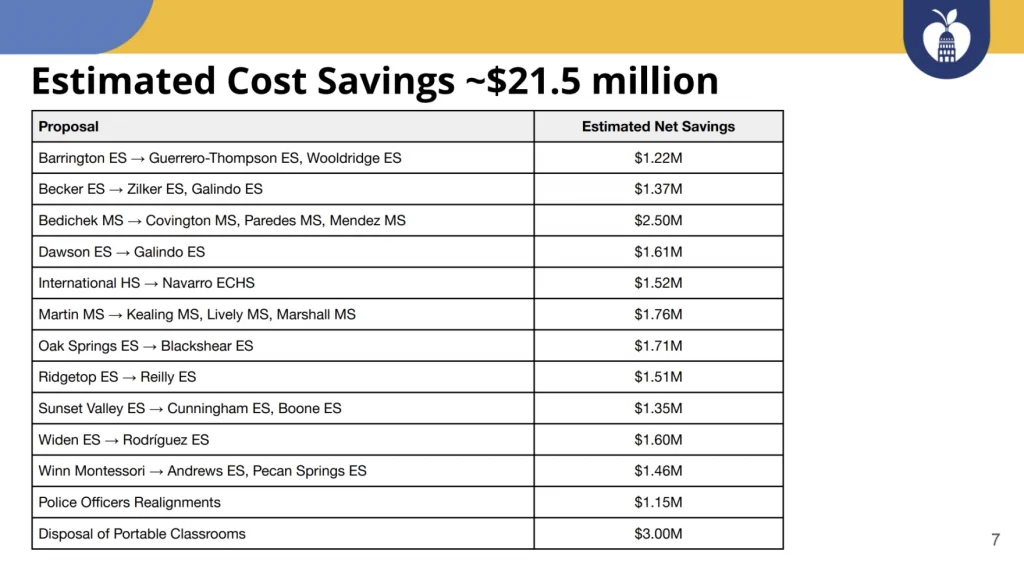A Necessary Step Toward Better Fiscal Responsibility
After years of fiscal mismanagement, the Austin Independent School District (AISD) has finally taken a meaningful step toward some accountability.
On November 22nd, the AISD Board of Trustees voted to close 10 under-enrolled and under-performing campuses and relocate thousands of students, a move projected to save millions of dollars. For taxpayers who have watched the district hemorrhage money while maintaining thousands of empty seats, this decision is long overdue.
By the Numbers
The numbers are stark. The closure of the campuses will save approximately $21.5 million annually and erase a $19.7 million budget deficit. AISD has been operating schools at fractions of capacity while simultaneously running massive budget shortfalls.

Taxpayers have effectively been forced to subsidize thousands of unused desks, empty hallways, and redundant administrative overhead. Consolidation will help to rightsize the district to match actual enrollment trends, free up resources that can be redirected to classrooms that are actually full, and eliminates the perverse incentive to keep failing or underutilized campuses open simply to preserve jobs or political goodwill.
Limited Resources
Limited resources ultimately means tightening the belt. As Texans for Fiscal Responsibility President Andrew McVeigh noted, “Austin ISD’s decision to consolidate under-enrolled campuses and eliminate a nearly $20 million deficit is a responsible step toward fiscal sustainability that taxpayers have every right to expect. Rather than running to already over-taxed residents for yet another bond or bailout, the district should stay the course, and remember that limited resources demand tough but honest choices—no matter how difficult they may be.”
Closing 10 schools and saving $21.5 million is a start, but not a complete solution. AISD’s structural deficit is driven by an underlying tendency, common in many school districts, local governments, and the state itself: a refusal to live within its means.
The Taxpayer Burden
But the district is not powerless. It can continue cutting administrative bloat, freezing non-essential hiring, and rejecting the reflexive impulse to run yet another bond election or VATRE every time revenues fall short. Voters already approved a $2.44 billion bond in 2022; they should not be asked to open their wallets again simply because the district refused to live within its means and budget responsibly.
The closures approved this month buy AISD some time, but more consolidation is already on the horizon. Superintendent Segura has signaled additional campuses could be considered as soon as next fall. Taxpayers should demand that the district stay the course, prioritize classrooms over bureaucracy, and resist the temptation of tax increases and generation debt, something that Austin voters soundly rejected in the November election by shooting down the city’s Proposition Q, which would have permanently raised taxes by 20%.
Responsible governance sometimes requires saying “no”—to sentimentality, to special interests, and to the idea that government can indefinitely expand without regard for what citizens can afford.
Texans for Fiscal Responsibility relies on the support of private donors across the Lone Star State in order to promote fiscal responsibility and pro-taxpayer government in Texas. Please consider supporting our efforts! Thank you!
Get The Fiscal Note, our free weekly roll-up on all the current events that could impact your wallet. Subscribe today!




